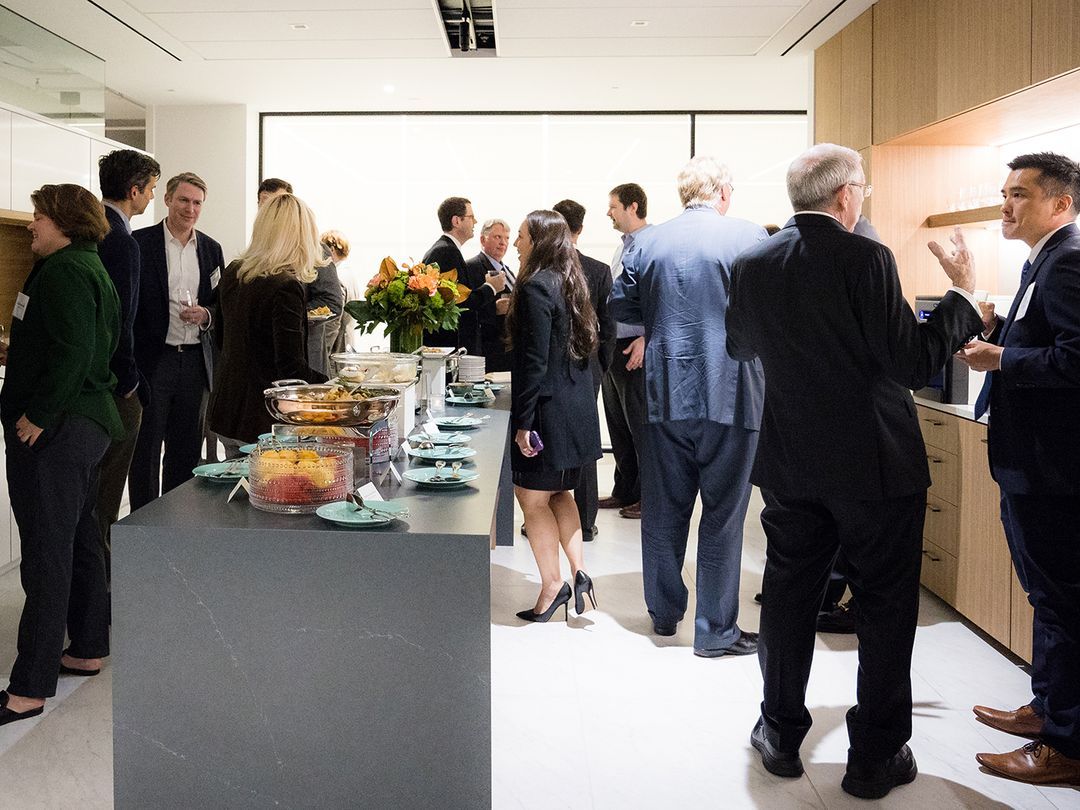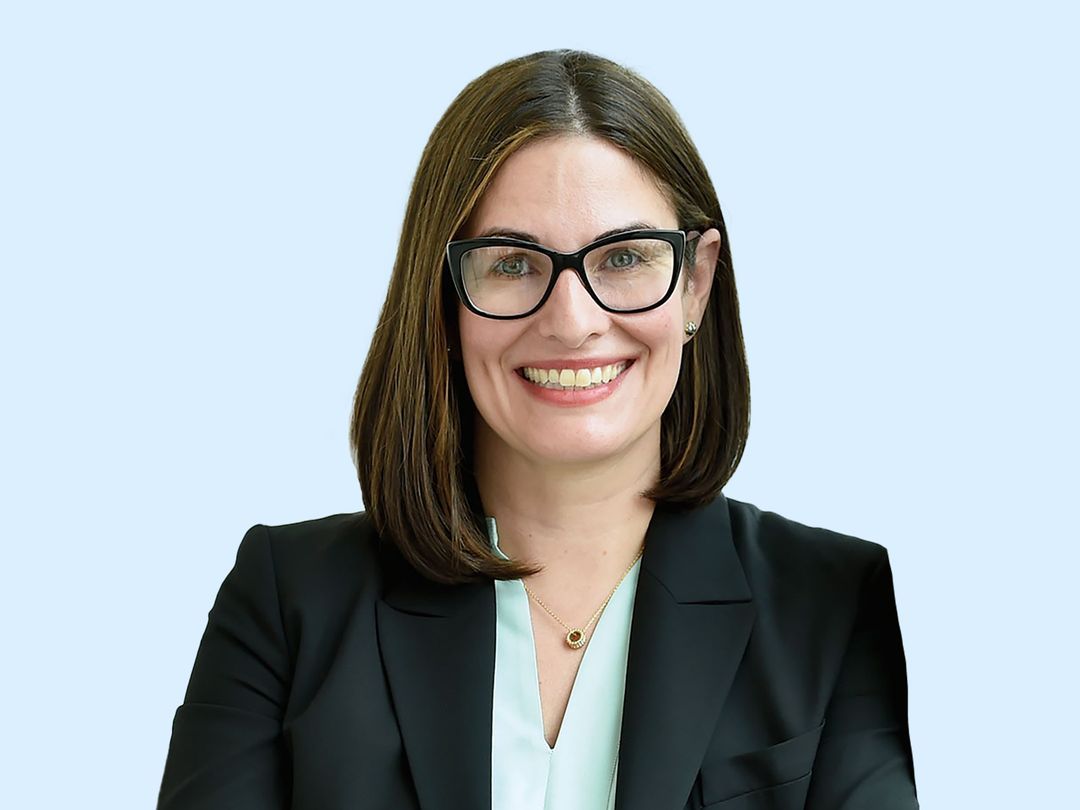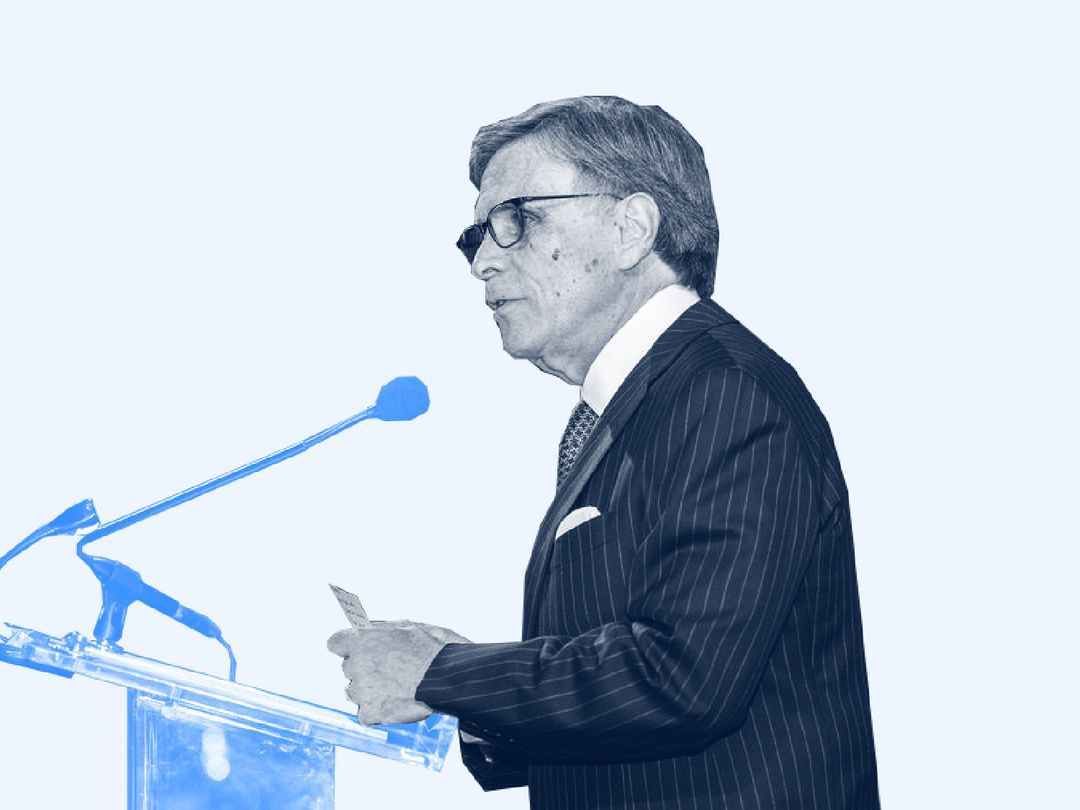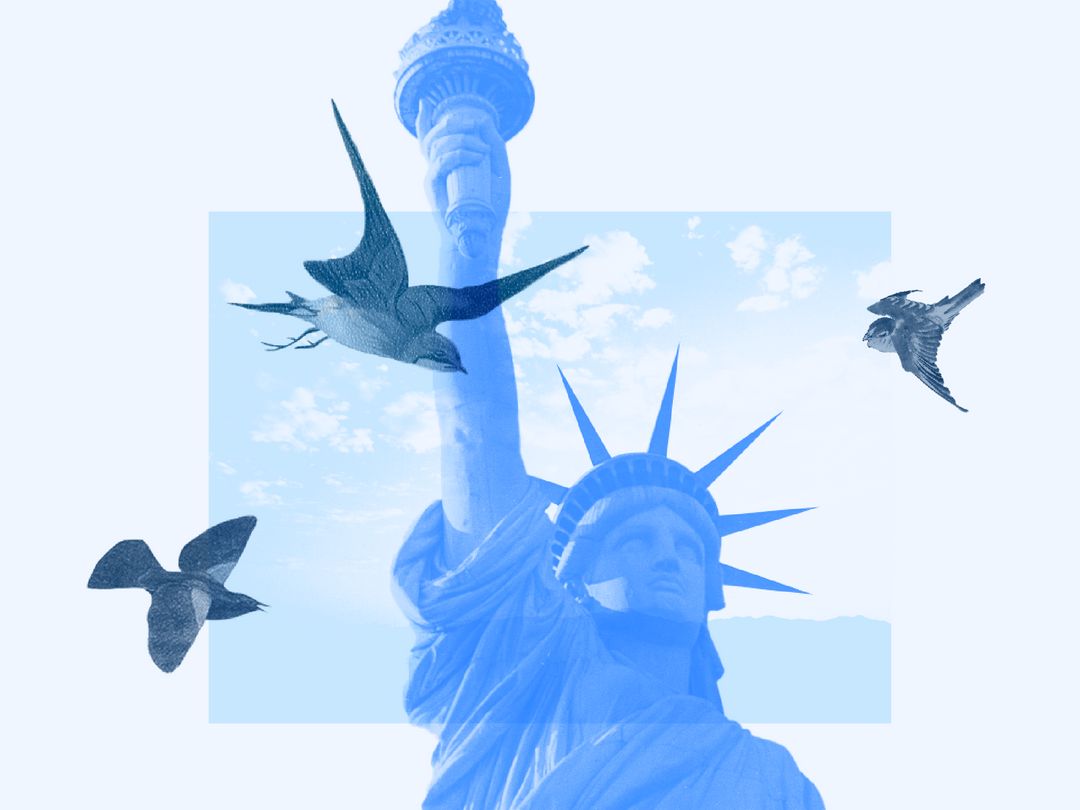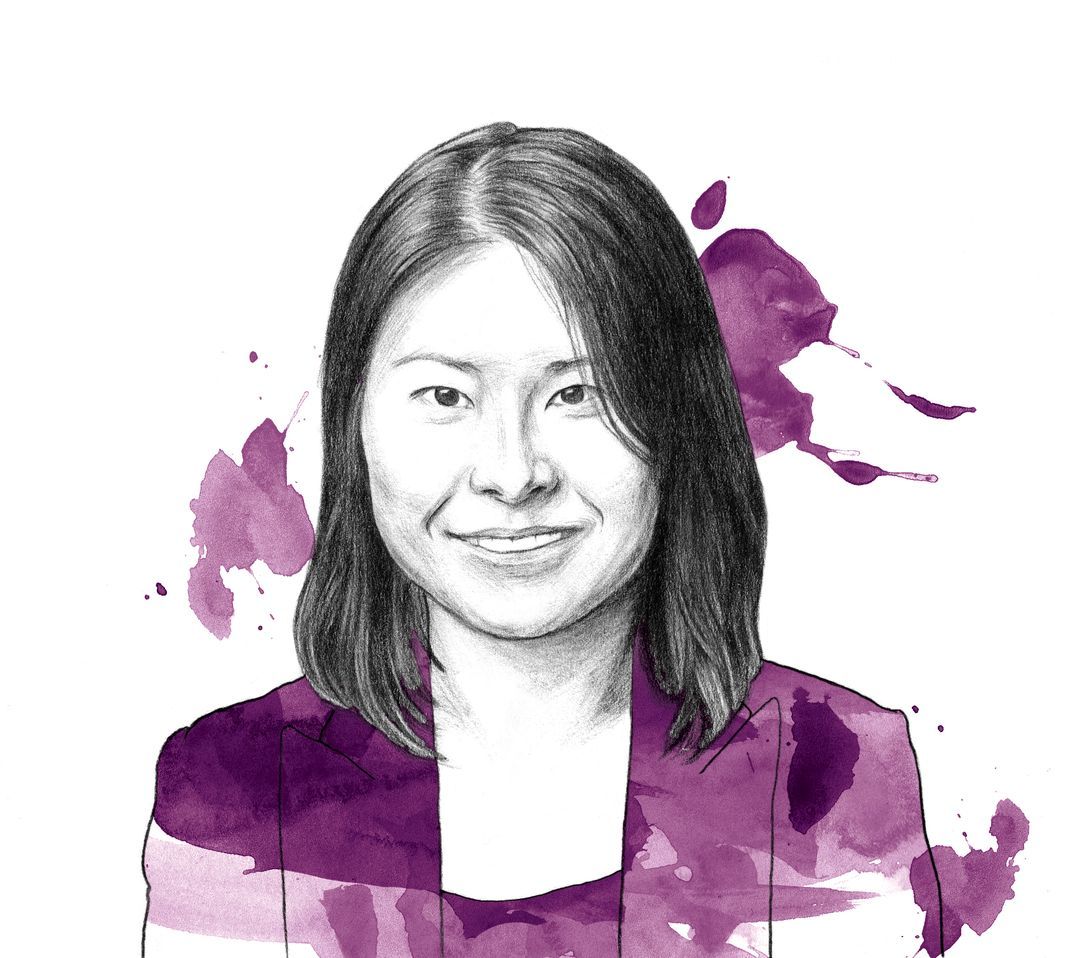Cravath’s London Office Moves to 100 Cheapside
In Depth
Amy Weaver’s Unexpected Journey from Private Practice to Corporate Leadership

Originally focused on a career in private practice, Amy Weaver surprised herself as she changed course to pursue an in-house path following the years she spent as an associate in Cravath’s Hong Kong office—bolstered by the training she received and the trust she had earned. Now the President and Chief Financial Officer of Salesforce, she reflects on the transformative leaps of faith that have shaped her career.
Growing up in Gig Harbor, Washington, a small town on the Puget Sound about an hour south of Seattle, Amy Weaver recalls how passionate her lawyer relatives—more than 15 in her extended family—were in pursuing their legal careers. Her grandfather served as Chief Justice of the Washington Supreme Court, and his four children, including Amy’s father, all became lawyers. She says she always envisioned following in their footsteps.
“All of these people I loved and admired had one thing in common, and that is that they were lawyers. It had a huge influence on me growing up,” she says. “People always ask if that means that being a lawyer is genetic. My father always said, ‘No, but it means a lack of imagination maybe.’”
“My father worked for the same law firm for 55 years, and he has never understood that anyone would want to do anything else. Law firm life to me was what you did when you became a lawyer; it was the ultimate calling.”
– Amy Weaver
Amy moved to Massachusetts to attend university, first at Wellesley College and then at Harvard Law School. After receiving her law degree, Amy began a clerkship on the Ninth Circuit Court of Appeals in Seattle, which meant moving back to the West Coast after a decade in Boston. The same year she completed her clerkship, Amy enthusiastically accepted the chance to work in Hong Kong, an opportunity presented through her participation in the Luce Scholars Program, a nationally competitive fellowship that offers early-career leaders immersive professional experiences in Asia.
In 1996, Amy and her husband, Jeff, moved to Hong Kong and she spent 12 months working for Margaret Ng, who at the time was a member of the Legislative Council of Hong Kong. “It was the year leading up to the handover of Hong Kong from the United Kingdom back to China,” she recalls. “Having that experience was an amazing opportunity in my career.”

As her Luce Scholar year drew to a close, Amy considered her next move, which to her only meant one thing: private practice. She says of that decision: “My father worked for the same law firm for 55 years, and he never understood that anyone would want to do anything else. Law firm life to me was what you did when you became a lawyer; it was the ultimate calling. So, I always anticipated that I would go to a large law firm to practice.”
And while Amy felt ready to chase that dream, she wanted to stay in Hong Kong. The problem was that the U.S. firms she was interviewing with all gave her the same disappointing answer: “We would love to have you join us. We’ll have you move to New York for two years, and then we’ll move you back to Hong Kong.”
But during her interview with Cravath, Amy met with corporate partner Clay Johnson, whose response to her interest in staying and working in Hong Kong surprised her.
“He looked at me like I was crazy. He said, ‘There’s work for first-year associates in Hong Kong. That doesn’t make any sense. Let me make a phone call. I’ll get back to you tomorrow,’” Amy remembers. “And sure enough, the next morning, he called and he said, ‘I talked to my partners overnight. You’ve got an offer.’
“And what really struck me about that was that Cravath, known for its tradition and its tight patterns and training, gave so much autonomy to its partners that he could make that phone call and make me that offer. There was no other place I wanted to work once that happened.”
“I remember talking to an older associate when I started at the Firm and mentioning how nervous I was. And he said, ‘You are right now, but give it two years at Cravath, and you’ll feel like you can do anything.’”
– Amy Weaver
Amy’s associate training was unique compared to the typical experience as part of the Cravath Rotation System. There were extensive training sessions that included videos of Cravath’s New York partners played during lunch, with the Hong Kong office lawyers actively participating and pausing the recordings to analyze how specific provisions would apply in Asia and to the matters they were handling.
As can be a common feeling among Cravath associates as they start at the Firm, Amy says she faced a steep learning curve. “I’m not aware of another firm that throws their associates in so quickly,” she says. “I remember on my walk to the office I would pass St. John’s Cathedral and literally stop, go down on my knees, and pray that I wouldn’t mess things up that day. It was so terrifying.
“But what comes from this is two things: First, Cravath knows who they’re hiring. They’re making a gamble on you, but it’s a calculated gamble. And I’m sure there are all sorts of safety nets that I never appreciated at the time.
“The other thing it does is it gives you unbelievable confidence. I remember talking to an older associate when I started at the Firm and mentioning how nervous I was. And he said, ‘You are right now, but give it two years at Cravath, and you’ll feel like you can do anything.’”
Amy began to appreciate those experiences more fully when she filled out, in her words, “copious” forms to have the Cravath training sessions count toward her CLE requirements in Washington as she prepared to move back to the United States to be closer to family.
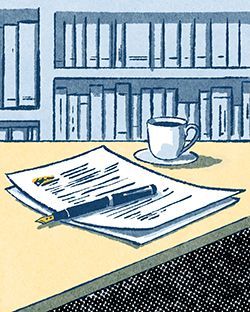
“Each time I filled out a form, it gave me an opportunity to look at these partners—people I saw every day at Cravath—and realize that I was learning from some of the top legal professors, people who I had the opportunity to ask questions of, people who might work just down the hall from me,” she says. “That ability to interact with people—and certainly at the level at which people are practicing at Cravath—is rare.”
Amy left Cravath in 2001, when she returned to the United States to join Perkins Coie in Seattle. Even after leaving, Amy maintains that her time at the Firm shaped her thinking at decision points throughout her career. An enduring influence is her passion for international transactions: Though primarily based in the Hong Kong office, Amy worked on deals across Asia, including in the Philippines, Vietnam, Malaysia, Singapore, Indonesia and India. The challenges of operating across multiple jurisdictions inspired her to explore roles that would satisfy this professional curiosity.
“Coming back to the United States, I knew that I wanted that type of practice,” she says. “I think that’s what led me to Expedia and to Salesforce: the opportunity to have global teams and grapple with global issues on a day-to-day basis.”
In her current role as Salesforce’s President and CFO, Amy leverages the sense of autonomy and responsibility she was given as an associate at the Firm. Those lessons shape Amy’s interactions with her team and how she manages a global legal department.
“At Cravath, they pushed people to their limits in terms of what they could do, and they had the confidence in them to succeed,” Amy says. “I try to adapt that model and continue that at Salesforce. I give people on my team as much responsibility as they want, and sometimes more, to show how well they can do things and make decisions on their own.”
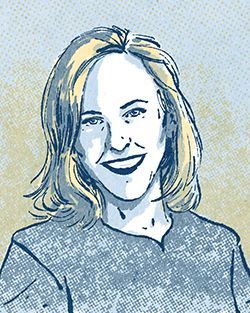
Reflecting on her choice to go in-house more than 20 years ago, Amy remembers the hesitation she had due to the perception at the time that such a course was a one-way street. “I was afraid that if I went in-house, I could never return to a law firm,” she says.
In particular, she recalls how her father used to tease her about the decision: “He used to talk about all of the different lawyers in our family, how we have professors and prosecutors and law firm lawyers. And then, he would always say reluctantly, ‘And Amy was the only one who went in-house.’”
“At Cravath, they pushed people to their limits in terms of what they could do, and they had the confidence in them to succeed. I try to adapt that model and continue that at Salesforce.”
– Amy Weaver
She notes how the reputation of in-house work has evolved significantly, offering a diverse range of setups and opportunities for unique career paths.
“There’s a fungibility and flexibility between working in-house and working at law firms today that is just getting greater and greater. If someone is interested in going in-house, I would encourage them to try it,” she says. “They can go back to a law firm at a different time, and I think they will be a stronger lawyer for it, with an incredibly valuable, new perspective.”
Despite her initial uncertainties in choosing the in-house route, Amy remains grateful for having made the decision and having confidence in her own skills and instincts, even when the future felt unclear.
“I think the best advice I can give someone early in their career is to not wait for all of the stars to line up before you make a change,” she says. “If you wait for that perfect moment, you’re never going to do it.”
In 2020, after seven years running the legal and corporate affairs teams at Salesforce, Amy took on yet another new challenge. The Chief Financial Officer of Salesforce was retiring, and CEO Marc Benioff asked Amy to take the role and move from Chief Legal Officer to CFO.
“It is an unusual move, to say the least,” Amy notes. “As far as I’m aware, this is the first time in a Fortune 500 company that this has happened. It was a huge leap for me—I knew it would require an incredible learning curve as well as personal risk.”
Amy again relied on experience from her time at Cravath, particularly the Firm’s insistence that associates understand financial statements. “I still recall sitting next to Julie Spellman Sweet [now the CEO of Accenture] in an accounting training class,” Amy says. “Cravath gave me the confidence to jump into a new area. I knew it wouldn’t be easy—and it wasn’t—but I reflected often on my first few years as an associate and the confidence it gave me to take on anything.”
She adds: “One of my all-time favorite quotes is from a man named William Sloane Coffin, who was the chaplain at Yale in the 1960s. He said, ‘I love the recklessness of faith. First, you leap, and then you grow wings.’”
Attorney Advertising. ©2025 Cravath, Swaine & Moore LLP.

